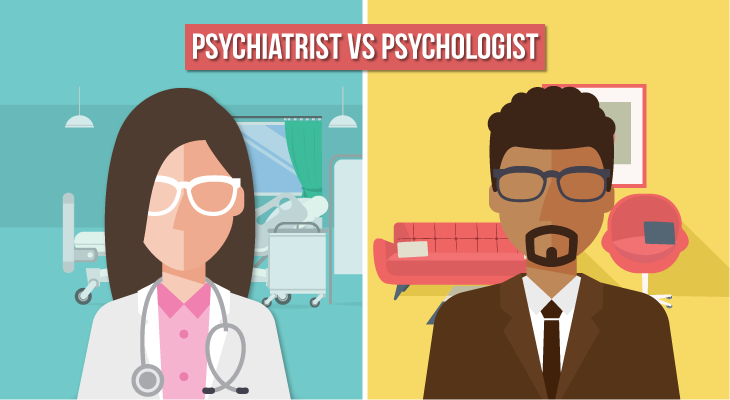When seeking mental health treatment, you may come across the terms “psychologist” and “psychiatrist.” While both professions deal with mental health, there are important differences between them. Understanding these differences can help you decide which type of mental health professional is best suited to meet your needs.
Education and Training:
The primary difference between a psychologist and a psychiatrist is their education and training. A psychologist typically holds a doctoral degree (Ph.D. or Psy.D.) in psychology and has completed an internship and supervised clinical experience. They are trained to diagnose and treat mental health issues through therapy and counseling.
On the other hand, a psychiatrist is a medical doctor who has completed medical school and a residency in psychiatry. They are licensed to prescribe medication to treat mental health disorders, as well as provide therapy and counseling services.
Treatment Approaches:
Another significant difference between psychologists and psychiatrists is their approach to treatment. Psychologists typically provide therapy and counseling services that involve talk therapy, cognitive-behavioral therapy, and other evidence-based treatments. They focus on understanding the psychological, emotional, and behavioral factors contributing to mental health problems.
Psychiatrists, in contrast, are medical doctors who can prescribe medication to treat mental health disorders, such as antidepressants, anti-anxiety medications, and antipsychotics. They also provide therapy and counseling services, but their primary focus is on the biological factors contributing to mental health problems.
Scope of Practice:
The scope of practice for psychologists and psychiatrists also differs. Psychologists are trained to diagnose and treat mental health disorders, such as depression, anxiety, and post-traumatic stress disorder (PTSD), through therapy and counseling. They may also provide testing and assessments for learning disabilities, intellectual disabilities, and other conditions that can impact mental health.
Psychiatrists, on the other hand, are trained to diagnose and treat mental health disorders through medication management and therapy. They are also licensed to treat more severe mental health disorders, such as bipolar disorder and schizophrenia, that require more intensive medical intervention.
Collaboration:
Psychologists and psychiatrists often work collaboratively to provide comprehensive mental health treatment. For example, a person with depression may see a psychologist for talk therapy and a psychiatrist for medication management. The psychologist and psychiatrist can work together to coordinate care and ensure that the person receives the best possible treatment.
In Conclusion:
While both psychologists and psychiatrists can provide mental health treatment, their education, training, and treatment approaches differ. Psychologists focus on therapy and counseling, while psychiatrists can prescribe medication in addition to providing therapy. Understanding the differences between these two professions can help you make an informed decision about which type of mental health professional is best suited to meet your needs.
